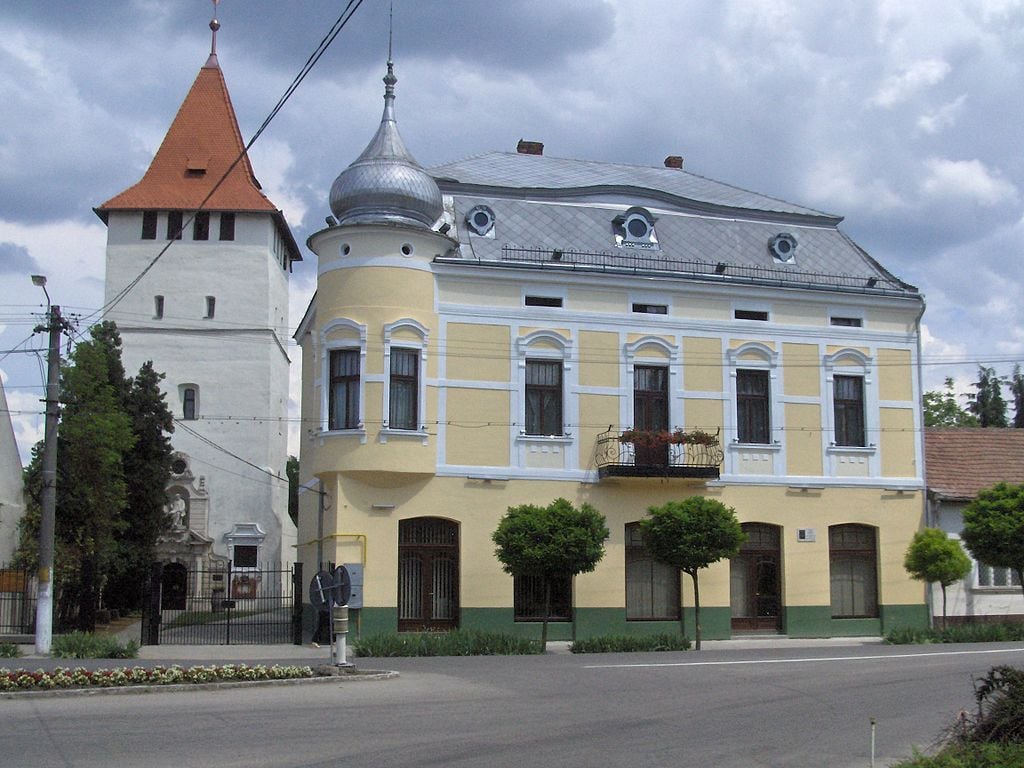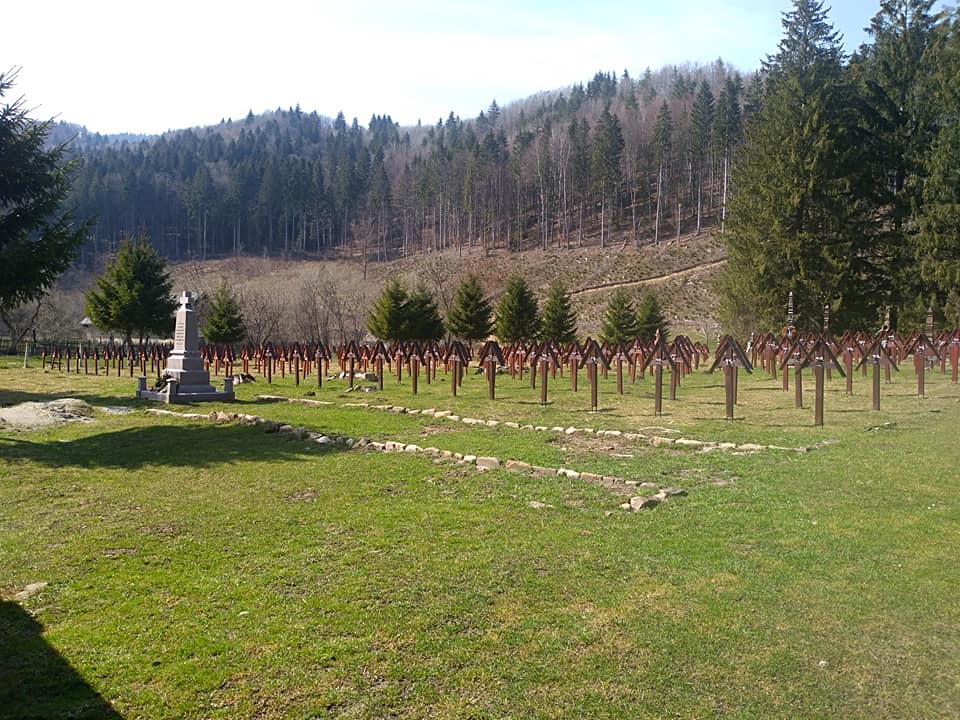On June 1st, as reported by Mandiner, around a hundred people gathered at the military cemetery in Valea Uzului (Úzvölgye) to “commemorate” the Romanian soldiers buried there, who in fact do not exist or were laid to their final rest in a completely different cemetery, at the call of Romanian politician Mihai Târnoveanu, leader of the anti-Hungarian nationalist movement Calea Neamului.
The event, which included patriotic songs and the blessing of Orthodox crosses, was not only about respecting the soldiers’ memory but also about conveying a political and ideological message, which aimed at intimidating the Hungarian community and “reclaiming” the Úzvölgye cemetery. Târnoveanu had provoked similar incidents in the past and emphasized in a video message:
Let us be united, brothers, and protect the crosses of the heroes of the Romanian army.”
The event’s political and ideological message to the Hungarian minority was sadly emphasized further by the support of the Orthodox Church. Romanian intellectual circles have also criticized the events. Influencer Cristian Marchiș wrote in a Facebook post:
The dead deserve peace. The war in which they lost their lives was enough. Instead, in Romania, they are still at war – a war in which they can no longer defend themselves.”
He believes that Romania is betraying its own dead by using their graves for political purposes and trying to ‘Romanianize’ soldiers who often had a completely different identity, language, and faith, using Orthodox rituals.
According to Zsolt Pászkán, an expert at the Hungarian Institute of International Affairs, quoted by Mandiner, it is not just a provocateur behind the events, but “even complicity” of the Romanian power elite. He pointed out that the head of the Romanian Orthodox Church, Patriarch Daniel, has not spoken out against the acts of desecration in Úzvölgye since 2019, nor has he attempted to discipline the priests who openly supported the anti-Hungarian actions.
The Romanian authorities are completely powerless against a few dozen provocateurs, even though a few years ago they quarantined entire cities.”
He added that the Romanian political leadership did not take action against Târnoveanu either during the election period or afterwards, despite receiving minimal electoral support. The expert sharply criticized the institutions of the European Union, which he said are not interested in the rights of national communities: “In the EU value system, national communities come after sexual minorities, animals, plants, and moths – if they come at all!” Pászkán concluded ironically:
We can even be glad that Târnoveanu is not touring Szeklerland in a Romanian army tank!”
Fact
The Úzvölgye military cemetery is the largest WW1 memorial site in Romania’s Hargita county, holding the graves of some 600 soldiers from Austria-Hungary. As
Hungary Today reported, in 2019, the local council of the eastern Romanian town of Dormánfalva (Dormănești), has moved to establish a memorial site in the cemetery for Romanian soldiers who fell in the Second World War. Although there was
no evidence that the remains of the Romanian soldiers would be in the cemetery, the local government of the nearest town, Dormánfalva (Dormănești) decided to erect crosses in memory of the Romanian soldiers allegedly resting there. Not much later, thousands of Romanians forced their way into the cemetery to attend the Romanian Orthodox consecration of the Romanian plot and monument, while Szeklers tried to prevent it. The Romanian authorities later acknowledged that there had been
no legal basis to erect the crosses. Similar incidents have occurred over the years, leading to an extended legal battle.
Via Mandiner, Featured photo: Wikipedia

